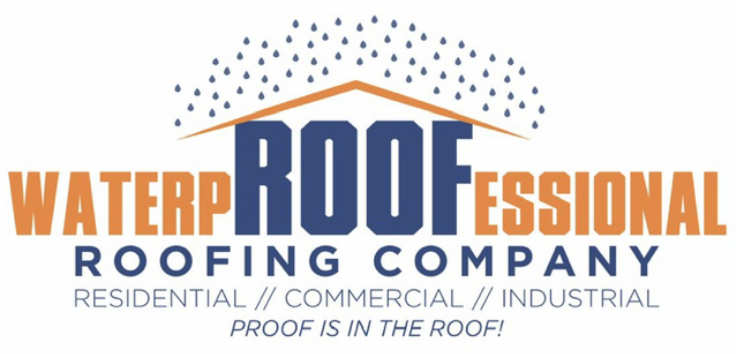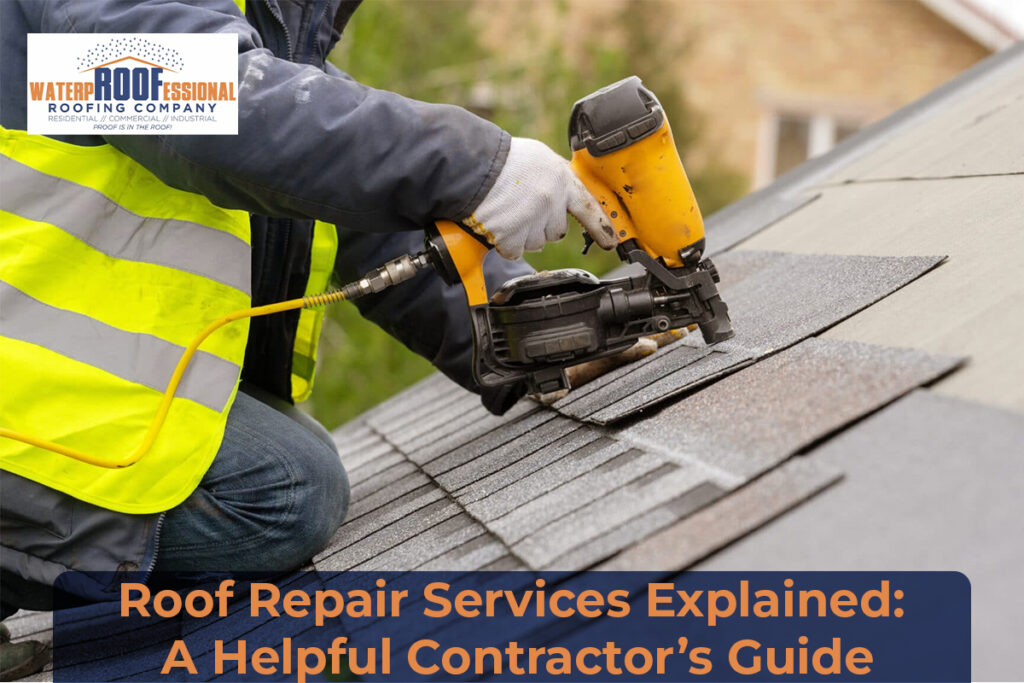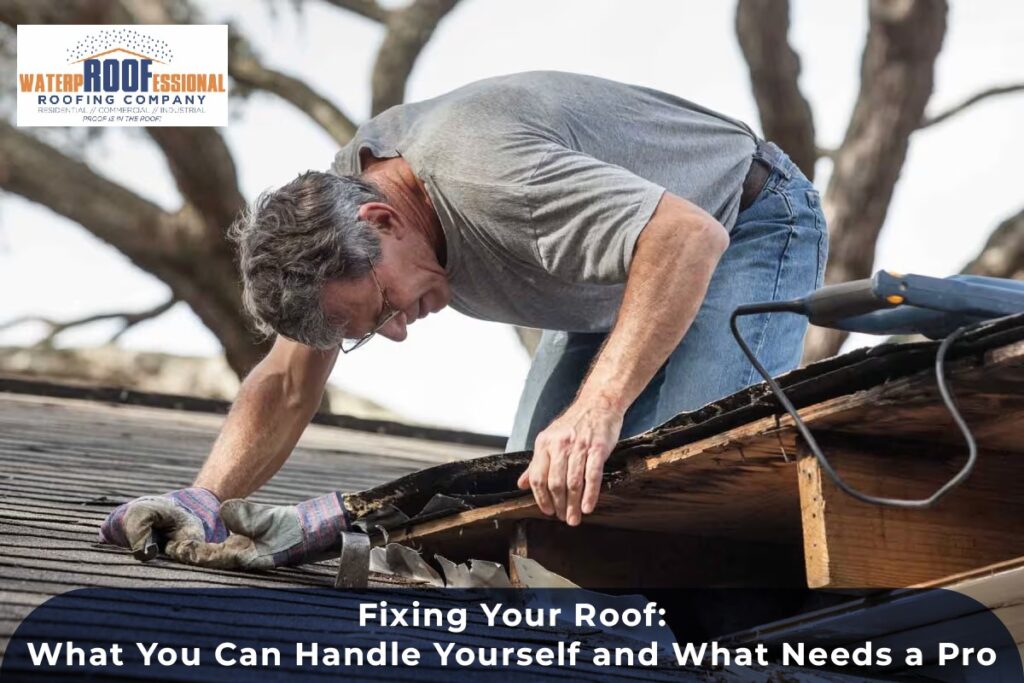Your roof is your home’s first line of defense against the elements, but knowing when to replace it can be tricky. Too early, and you may waste thousands of dollars. Too late, and you risk costly water damage, mold, or even structural issues. Whether you’re a first-time homeowner or a seasoned one, understanding the right time for a residential roof replacement is essential to keeping your investment safe and secure. With a bit of knowledge and the right help, you can time your roof replacement perfectly—avoiding unnecessary expenses and surprises.
In this guide, we’ll break down the top signs your roof needs attention, how to estimate the roof replacement cost, and when to call in the pros. You’ll also get helpful tips on choosing reliable roof replacement contractors and what to expect from the process.
Know the Lifespan of Your Roof Materials
Not all roofs are built the same. The type of roofing material significantly affects its lifespan. For example, asphalt shingles, the most common material used in residential roofing replacement, typically last 15 to 30 years. Metal roofs can last 40 to 70 years, while tile and slate can stretch well beyond 100 years with proper care.
Understanding what kind of material is currently on your home helps you anticipate when you might need a roof replacement. Even if your roof isn’t showing obvious signs of damage, if it’s approaching the end of its expected life, it’s a smart move to schedule an inspection and get a roof replacement estimate.
Watch for Visual Red Flags
Sometimes your roof tells you it’s in trouble—you just have to look up. Missing, curling, or cracked shingles are major indicators that your roof’s integrity is compromised. Likewise, if you see granules accumulating in your gutters, that’s a sign the shingles are deteriorating.
Inside your home, signs like stained ceilings, damp spots in the attic, or unexplained drafts may point to roof issues. Don’t wait until water starts dripping onto your floor; these red flags signal that roof replacement services may be necessary soon.
Consider the Age and Weather Conditions
If your roof is over 20 years old, especially in areas with harsh winters, intense summer heat, or frequent storms, you should be extra vigilant. Weather can shorten the lifespan of even high-quality materials.
Annual roof checkups are a great preventive measure. After severe weather events, it’s always wise to get a professional assessment. Search for “roof replacement near me” and connect with local experts who can spot subtle damage that may not be visible to the untrained eye.
Understand Roof Replacement Costs
One of the biggest concerns for homeowners is the roof replacement cost. Prices vary based on factors like size, materials, labor, location, and structural repairs. On average, homeowners spend between $5,000 and $15,000.
Getting a detailed roof replacement estimate helps you budget appropriately. Be wary of prices that seem too good to be true; lower quotes often reflect subpar materials or inexperienced roof replacement companies.
Choose the Right Contractors
Hiring the right roof replacement contractors can make or break your experience. Look for licensed, insured professionals with solid reviews and proven experience in residential roof replacement. Ask for references and look at photos of past projects.
Don’t be afraid to get multiple estimates. This helps you compare not only prices but also timelines, warranties, and professionalism. Local pros, like those at Waterproofessional, often understand your region’s weather conditions and building codes better than out-of-town companies.
When Is the Best Time for a Roof Replacement?
Timing can impact both the cost and efficiency of a roof replacement project. Spring and fall are usually the best seasons for roofing work because of mild temperatures and stable weather conditions.
However, scheduling during off-peak seasons may get you quicker service or even discounts. Just be sure weather won’t delay the job, especially if you live in a region with heavy rains or snowfall.
Preparing for the Roof Replacement Process
Once you sign on with a contractor, you’ll need to prepare. Move vehicles and valuables away from the house, cover items in the attic, and inform your neighbors about potential noise and debris. Most residential roofing replacement projects take one to three days.
During the installation, expect some noise and temporary inconvenience. Reliable roof replacement services should manage cleanup thoroughly and leave your property in great condition.
The Importance of Routine Maintenance
Even the best roof won’t last forever without some TLC. Regular inspections and timely repairs can extend its life and keep your home protected.
Simple maintenance like cleaning gutters, trimming nearby tree branches, and checking for damage after storms can prevent larger issues. Building a relationship with roof replacement companies for periodic checkups ensures you’re always a step ahead.
Final Thoughts: Don’t Wait Until It’s Too Late
Replacing your roof isn’t just a big-ticket item—it’s a crucial investment in your home’s safety and value. Waiting too long can lead to extensive damage, higher repair costs, and even health risks from mold or leaks.
Pay attention to your roof’s age, visual wear, and weather exposure. Partner with professional roof replacement services for inspections and honest advice. The sooner you act, the more money you save in the long run. Be proactive, get estimates, and start planning—because timing it right makes all the difference.
FAQs About Roof Replacement
How often should I replace my residential roof?
Most asphalt shingle roofs last about 20-30 years. Other materials like metal or tile can last longer with proper care.
What affects the roof replacement cost the most?
Material choice, roof size, labor, and location are major cost factors. Adding insulation or structural repairs will increase the price.
Can I stay in my home during the replacement?
Yes, in most cases. Although it might be noisy, homeowners can usually stay in the house during roof installation.
What’s included in a roof replacement estimate?
A proper estimate includes material costs, labor, removal of the old roof, disposal fees, and warranties.
How do I find trustworthy roof replacement contractors?
Look for local contractors with positive reviews, proper licenses, and insurance. Ask friends or check trusted sources like Waterproofessional.




